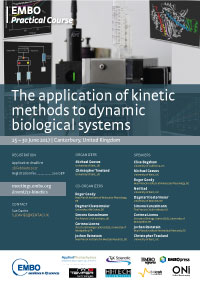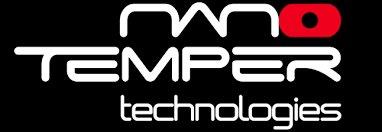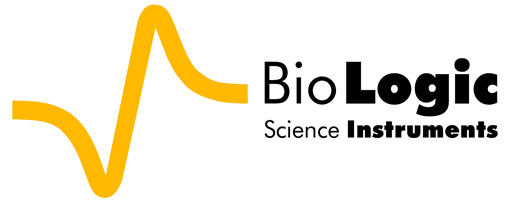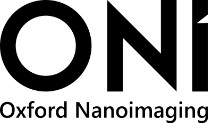About the Practical Course
The EMBO Practical Course is designed to give a thorough training in the principles and practice of transient and single molecule kinetics as applied to biological macromolecules.
Transient kinetics is a well-established field which has made major contributions to the understanding of both the mechanisms of enzymes and to the central role of protein-ligand and protein-protein interactions in biological processes such as signalling, motility, gene expression, protein folding and DNA replication. Over the past two decades, single molecule methods have been developed to complement and advance these fields. Yet it remains a field dominated by specialists, despite the wide availability of the equipment. The practical course is designed to increase the awareness and accessibility of these methods to a wider group of biologists.
This EMBO Practical Course is aimed at scientists (graduate students, postdocs, and established scientists) at two levels:
- Those who recognise that they need to use kinetic methods but have little formal training in these methods. This includes scientists who already have access to the equipment or who plan to acquire such technology in the near future. These participants will be encouraged to bring their own samples for use on the course.
- Scientists who have used transient kinetics or single molecule methods but who would like to explore more sophisticated experimental and data analysis approaches. These participants will be encouraged to bring their own samples or data for use on the course.
More recently the field has experienced something of a resurgence for three major reasons:
- The emergence of molecular biological methods for identifying and isolating large quantities of specific proteins has led to a number of interesting proteins in need of detailed analysis.
- The wider recognition that biological events are defined within a given time frame (msec-sec) and that we need to study individual molecular events within this time frame. Detailed kinetics complements high resolution structural studies and together the two methods can give a molecular explanation of biological function.
- The commercial development of high quality, reliable kinetic equipment has made such techniques accessible to a wider population of scientists. The investment in the development of commercial systems had led to significant advances in both instrument sensitivity and in economy of biological materials required for such studies.
For those of you new to transient and single molecule kinetics it is strongly recommended that you look through some of the references provided in the general reading list (pdf). Some initial familiarity with this material will help you get the most out of the course.
About EMBO Courses and Workshops
EMBO Courses and Workshops are selected for their excellent scientific quality and timelines, provision of good networking activities for all participants and speaker gender diversity (at least 40% of speakers must be from the underrepresented gender).
Organisers are encouraged to implement measures to make the meeting environmentally more sustainable.










